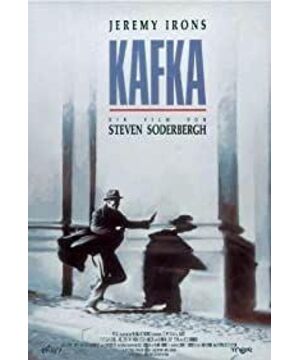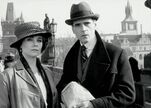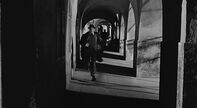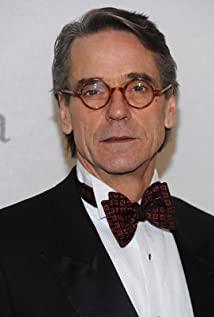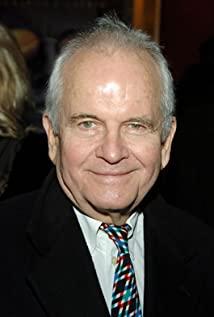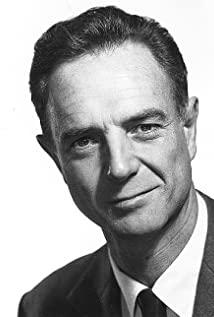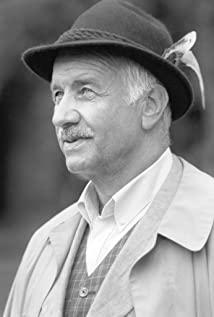I love detail-oriented films and directors. For example, Edward Laban, in order to avoid capture, crossed the Charles Bridge and ran in the direction of the castle. He took a breather in front of a wall full of posters. The posters have the words "Odyssey" and "1919 Art Exhibition, 13 Prague Avenue". The art exhibition at Prague Avenue 13 is actually an art salon founded by Emil Richter in Dresden in 1848. After entering the new century, the Sezession movement was staged in full swing in various parts of Germany. Berlin, Dresden (1919), Darmstadt and Baden Secession were successively announced, which accelerated the history of German art development. process. Among them, the Dresden Secession signed a one-year contract with the Richter Art Salon, and the content of the contract includes undertaking various art exhibitions. On the 4th of 1920, the Dresden Secession held an art exhibition about the Czech Expressionist and Cubist art groups, which mentioned plans to hold an exhibition in Prague. For another example, the typewriter in the office is a Remington card, and the director specially gave a close-up at about 50 minutes. Remington Rand, an early American computer maker, acquired the Remington Typewriter Company in 1927. Finally, in addition to the representative castle, the Charles Bridge, the office, and the cafe that Kafka likes to go to, the scenes that often appear in the film. Cafes bring together people from all walks of life, for example, some people are discussing poetry (about rhyme), some people are constantly flirting with girls, etc. Details like this restore to some extent the art, technology and ordinary daily life of the Kafka era, even if the film is just a political film in the guise of a Kafka biography. It can be said that details are the whole of Kafka's works, observation is the process, and writing is the result.
How did Soderbergh shape his Kafka? Kafka in the movie is an ordinary clerk in an insurance company. As we all know, Kafka once worked for the workers' accident insurance company in the Kingdom of Bohemia. In addition, Kafka in the movie is a writer who is often mentioned by passers-by, and he also mentioned that he is currently working on a strange story about a man's transformation (). One night, he ran into Bezrebek, the mason, and their conversation revolved around castles, castle cemeteries, and punishment. He even reminded Kafka to keep his distance from the castle. All of this laid the groundwork for the plot development of the film.
Before the arrest of Miss Rothman, the fiancée of Edward Laban in the film and Kafka's colleague (the protagonist of the novel "The Missing Man"/ is called Karl Rothman), she also explained to Kafka that " The term "them", that is, those in power, the police, the castle, and the Borg (the head of the insurance firm), is the same as the "above" or "authority" that is often mentioned in the novel "The Castle". In addition, Kafka also talked with Miss Rothman about marriage, Kafka said: "I was engaged twice last year, with the same woman." This alludes to Kafka's first fiancée, Felice Bauer, with whom Kafka was twice engaged and then twice called off.
Kafka came home after get off work and started writing letters to his father. Soderbergh points out, in just a few frames, the conundrum facing Kafka, how to break out of his father's sphere of influence. His father's authority and his own boredom with any form of family had a negative impact on his life. He is afraid to invite friends over to his house, and the presence of his father threatens his relationship with Anna (not detailed in the film). In fact it is. According to Kafka's lifelong friend Max Broad, he was very afraid to go to Kafka because of Kafka's father, so in Broad's biography of Kafka, many oral materials came from Kafka Card mother. In addition to the letter to the father, the theme of the father-son relationship is also vividly reflected in the short stories "Judgment" and "The Metamorphoses". The contrast between the cowardice of the son and the strength of the father and the psychological trauma caused by the contrast can be traced back to Kafka's childhood.
As for the name "Kafka" (which means "jackdaw" in Czech), prosecutor Gruban had questioned whether it was his real name. Whether it's "Kafka", or names that appear in Kafka's novels, such as "Josef K." , Land Surveyor "K." , "Georg Bendemann" , and "Odradek" "Wait, there are big articles to write. After some conversation with the boss, Kafka got two assistants (Ludwig, Oscar), two assistants who looked completely different but claimed to be twins. The funny thing is that Kafka asked if they were brothers. This at least proves that Soderbergh understands one of the quintessence of Kafka's work—the funny. He tried his best to restore the two hilarious assistants (Arthur, Jeremiah) assigned to the land surveyor K. by his superiors, or two assistants of Broomfield. (Kafka was fond of using the number "two" and then tying together two essentially the same things for a comical feel. There are several examples of this throughout the text.)
Anarchists continue to operate. After a blast, Kafka is taken into the attic of a building (Kafka likes to use attics, the court office is in the attic of a run-down apartment in ) and asked to join the great act of anarchism Among them, namely the investigation of the trial/verdict. Edward Laban died at the castle, they said. Of course, Edward's death was only the beginning of the brutal assassination of the anarchists. One of the places where anarchists were executed (stabbed) was in the suburbs outside the city, and Joseph K. was also executed in the suburbs far away from the city. To investigate Edward's death and to find the missing Miss Roseman, Kafka, with the help of a friend, travels from a secret passage in the cemetery to the castle's medical records section. I accidentally bumped into the "prisoner" with a nail on the back of his hand and a bald piece on the top of his head. The medical laboratory is euphemistically called the study of the human brain, but it is actually a "killing machine" described by Kafka. () Kafka in the movie said: "I only imagine nightmares, and you create them." Machines and violence, that is, the machines in the superstructure and the machines in the laboratory, mental violence and the body Violence is staged in the reality of the movie. Finally, after a series of dream-like destruction of the laboratory, Kafka returned to the city along the same path, continuing to write the letter to his father in the office and coffee shop.
Some of the designs in the movie can be seen from Soderbergh's understanding of Kafka, or he did make an effort to understand Kafka, even details such as Kafka's frail body, pale face, lung disease and coughing up blood. All considered. But Soderbergh's ambitions also appear to be big, creating a kind of chaos that defies authenticity by frantically adding clues to Kafka's work in the film's limited length. I'm wondering, when exactly is this Kafka? If we replace the movie's title and the protagonist with an X, wipe out a few close-ups of the castle, and delete the line "A strange story about someone's transformation of a man", how many people know that this is a Kraft Card biography? In this way, Kafka appears to be nothing more than a symbol.
View more about
Kafka reviews


